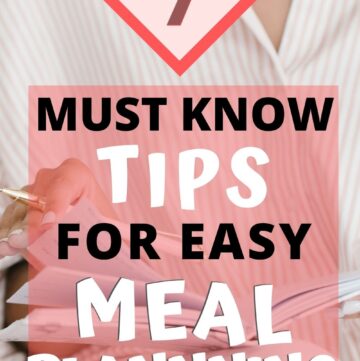*This information is for entertainment purposes only. Please see our disclaimer disclosure for more information. Please consult your doctor regarding any changes to diet and/or lifestyle.

So you want to start intermittent fasting? Luckily, intermittent fasting for beginners is actually super easy! Stick around if you’re looking for everything you need to start intermittent fasting!
For beginners to start intermittent fasting you need to know what type of IF plan you want to follow, what you can/cannot have during fasting, and if it is safe for you according to your doctor.
Intermittent fasting is defined as an umbrella term for various meal timing schedules that cycle between voluntary fasting and non-fasting over a given period. Basically, this just means you skip a meal or two. So simple!
Intermittent fasting has a proven array of benefits such as cell autophagy (recycling of damaged cells), weight loss, diabetes prevention, lowered cholesterol and more. Check out this interesting read by Harvard Health if you’re looking for a very sensible read on how to best benefit from intermittent fasting.
Types of Intermittent Fasting Plans
There are four main types of IF plans, to save the most of you time, I will start with the most common. This is the plan that myself and most people follow. I would start with this plan, or something easier (like number 3), when intermittent fasting for beginners.
- This plan is the 16/8 plan. The 16/8 plan means you have a 16-hour fasting window, and and 8-hour eating window. In practice, I start eating at around 12 pm and stop eating by 8 pm. You can change these times to best fit your schedule. You can also ease into a 16/8 plan by having a shorter fasting window, initially.
- The second most popular IF plan is one meal a day. Many people abbreviate, OMAD. This means you eat one meal a day. This one meal is typically a BIG meal, but still less overall calories that would have normally been consumed in a day. I’ll be honest, I like OMAD. I did it for awhile, but I have problems with binge eating. After awhile, it just became an excuse to binge. OMAD can be good for some, but watch out if you have a tendency to overeat.
- Next up, we have the 12/12 plan. This means you fast for 12 hours, and eat for 12 hours. For example, your eating window could be from 7 am to 7 pm. This is a great option when first starting out!
- The final most popular IF plan would be alternate day fasting. This means you fast every other day, and there are many different variations. In general, I find this really hard, and inconvenient. But some people have had seriously stellar results. To me, it just ain’t worth it.
In closing, if you’re just starting out, start with the 16/8 plan. Or maybe something even easier, like 12/12 and ease your way into it. Your body will get used to the new schedule over time. Listen to it.
Know what you can consume during your fast.

During fasting, it is key to be calorie free. I think that is a no-brainer. Luckily some drinks are calorie free… Stuff like black coffee, tea, water, diet soda, and more! Check out my post on awesome drinks you can have while fasting for some fun inspiration.
It is SO vital to keep hydrated, so make sure you’re getting enough water!
Another important thing to think about is keeping insulin levels steady. Spikes in insulin are counter productive to intermittent fasting. To prevent this, we must keep clear of any sugar free additives that are proven to increase insulin. Basically, stay away from maltodextrin and sugar alcohols during IF.
*There is also evidence that suggests artificial sweeteners being able to raise blood sugar, by changing gut biome. In general, artificial sweeteners should be consumed in moderation. Try to consume mostly natural sugar-free sweeteners such as stevia or monkfruit.
Ask your doctor before starting.
Intermittent fasting is not for everyone. You could be putting yourself at risk if you are someone with advanced diabetes or are on medications for diabetes, have a history of eating disorders like anorexia and bulimia, and pregnant or breastfeeding. Bottom line, I am not a doctor or an expert. Ask your doctor first!
Do What Works For You!
Always be mindful of how you are feeling. Make sure you are nourished, listen to your mind & body.
Do you still have any questions? Just want to say hi? Drop me a comment below! ♥



